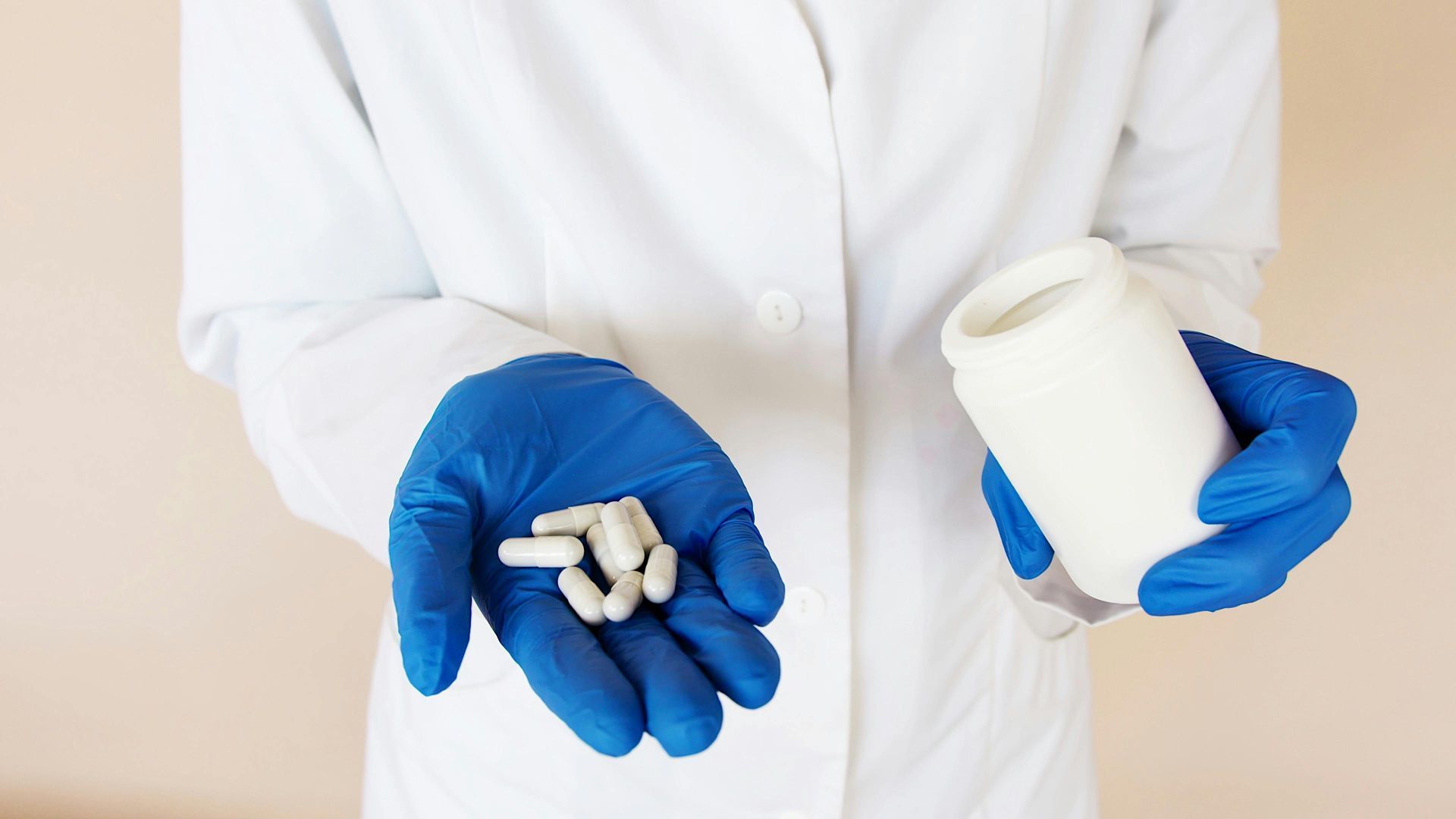cGMP Training: Essential for Pharmaceutical Professionals
The Federal Drug Association (FDA) enforces a quality control system called the current Goods Manufacturing Practices (cGMP) for the pharmaceutical industry. These regulations and guidelines ensure the proper design, monitoring, and control of manufacturing processes and facilities. cGMP also applies to other consumable products like drug ingredients and related pharmaceutical products, diagnostics, and medical devices.

Adhering to cGMP regulations ensures drug products' identity, quality, strength, and purity by enforcing that pharmaceutical manufacturers properly control their manufacturing operations.
When manufacturers adequately execute cGMP standards, they help prevent contamination, product quality deviations, mix-ups, failures, and errors.
Read on to learn why cGMP training is essential for any pharmaceutical professional looking to advance or accelerate their career and stand out from the competition.
The Role of cGMP Training in the Pharmaceutical Industry
Current Goods Manufacturing Processes training is essential in the pharmaceutical industry as it helps manufacturers employ qualified personnel and improve existing processes while ensuring safety for the end consumer. cGMP training can also increase the value of pharmaceutical professionals looking to advance their careers.
cGMP requirements are flexible, so each manufacturer can decide how to implement necessary controls using scientifically sound design, processing procedures, and testing methods. Flexibility enables companies to ensure regulatory compliance and quality standards by using innovative approaches and modern technologies to achieve higher quality through continuous improvements.
Understanding the Principles of cGMP
The fundamental principles of cGMP best practices are:
- Creating Standard Operating Procedures (SOPs): Develop and implement clearly defined SOPs that consistently produce high-quality products.
- Implementing and enforcing SOPs and work instructions: Follow documented processes and procedures without deviation to eliminate potential errors and hazards.
- Documenting processes and procedures: Maintain accurate record-keeping and documentation of all SOPs, including dates, times, batch numbers, and testing results.
- Validating the efficiency of SOPs: Ensure the expected level of compliance through all stages of SOPs by using various cross-checking methods to validate results.
- Designing and using working systems: Incorporate employee and consumer safety, quality, and productivity into developing and designing equipment and facilities.
- Maintaining facilities, systems, and equipment: Proper maintenance reduces risks to employees and consumers, prevents product contamination, and results in fewer equipment breakdowns and building interruptions.
- Developing job competence of employees: Every employee affecting the quality of a product should have cGMP training in addition to their regular professional development.
- Preventing contamination through cleanliness: Protect the consumer and avoid product contamination by having a contamination control process and following sanitization and cleaning procedures.
- Prioritizing quality and integrating it into the workflow: Manufacturing, labeling, packing, marketing, and distributing are all examples of workflow stages. Clearly defined controls at every step ensure quality is a workflow integration.
- Conducting regular cGMP audits: Identify how successful your cGMP compliance is through periodic audits. Monitor and evaluate your processes and procedures for efficacy on a revolving schedule to maintain and improve quality.
Because consumers can’t use smell, touch, or sight to detect when drugs are unsafe or effective, pharmaceutical companies must manufacture them under the practices and conditions required by cGMP regulations to ensure quality design and compliance. Therefore, there are crucial cGMP guidelines that pharmaceutical professionals must follow:
- Maintain a high level of cleanliness and sanitization throughout the entire drug manufacturing facility
- Define and control all processes with distinct definitions and control measures
- Use proper precautions to prevent cross-contamination and adulterations
- Train and qualify all personnel and operators for the job
- Follow Goods Documentation Practices for all processes
- Track data history relevant to all processes at all times, including manufacturing steps, distribution, equipment validation details, serialization data, and more
Benefits of cGMP Training and Certification for Professionals
There are many advantages of cGMP training and certification for individuals working in the pharmaceutical industry.
First, cGMP training certification ensures workers understand the importance of keeping their work environment clean and safe. This is crucial as foreign contaminants or substances can compromise the quality and safety of manufactured products.
Second, cGMP certification teaches pharmaceutical professionals how to handle products and materials correctly. Knowing proper handling procedures for hazardous materials also prevents contamination while keeping employees safe.
Third, professionals understanding cGMP procedures can help identify and address potential issues. For example, they may recognize a potential contamination risk and bring it to the relevant personnel’s attention safeguarding against product contamination and breaking compliance with regulatory standards.
Lastly, knowledge of cGMP regulations can increase job prospects and marketability. This is especially true in regulated industries with strict standards and rules for maintaining the quality and safety of their products, such as food manufacturing and pharmaceuticals.
An in-depth understanding of cGMP demonstrates a commitment to safety and quality, which can help individuals stand out in a competitive job market. Employers highly value those familiar with cGMP procedures, so candidates with the required training typically have more job opportunities and better odds of being hired or promoted. Pharmaceutical cGMP training also shows that candidates are proactive in their career development and willing to invest time and effort to acquire new knowledge and skills.
Implementing cGMP in Pharmaceutical Organizations
Pharmaceutical companies must adopt robust operating procedures and good practices to consistently produce safe, high-quality products that meet industry standards and are safe for consumer use. Organizations can successfully implement cGMP standards by:
- Enforcing strong communication between departments so everyone understands their role in providing the best compliance possible within the appropriate regulations and laws governing manufacturing operations.
- Thorough cGMP employee training is key to familiarizing staff with relevant procedures and policies, ultimately contributing to successful long-term business strategies and providing quality goods while maintaining profitability. Companies can benefit from our customized on site training program. It provides in-depth, quality content delivered by industry-active experts. The convenience of having the training in their own offices is an added advantage.
- Implementing proper safety protocols to protect workers against hazards associated with working in manufacturing facilities and creating a supportive workplace culture where professionals feel respected and valued.
Boost Your Marketability With CfPIE’s cGMP Pharmaceutical Training Programs
Stand out from the competition with in-depth knowledge of cGMP regulations, from clinical development through post-approval drug and biotech product manufacturing, with CfPIE’s industry experts.
cGMP courses with CfPIE outline cGMP mandates and provides comprehensive instruction and analysis of how you can bring the best compliance processes to your current or future employer.
Get in touch to learn more about our life science courses and certifications.
The Center for Professional Innovation and Education (CfPIE) is the global leader in life sciences training, providing specialized courses for pharma/biotech, medical device, and skin/cosmetics topics. Classroom and custom on-site formats, and certification programs help improve personal skills, maintain regulatory compliance, and advance careers. Small class sizes and industry-active course directors promote a dynamic learning environment with excellent student-to-teacher interaction. More information: http://www.cfpie.com
Blog Categories
Stay Informed


